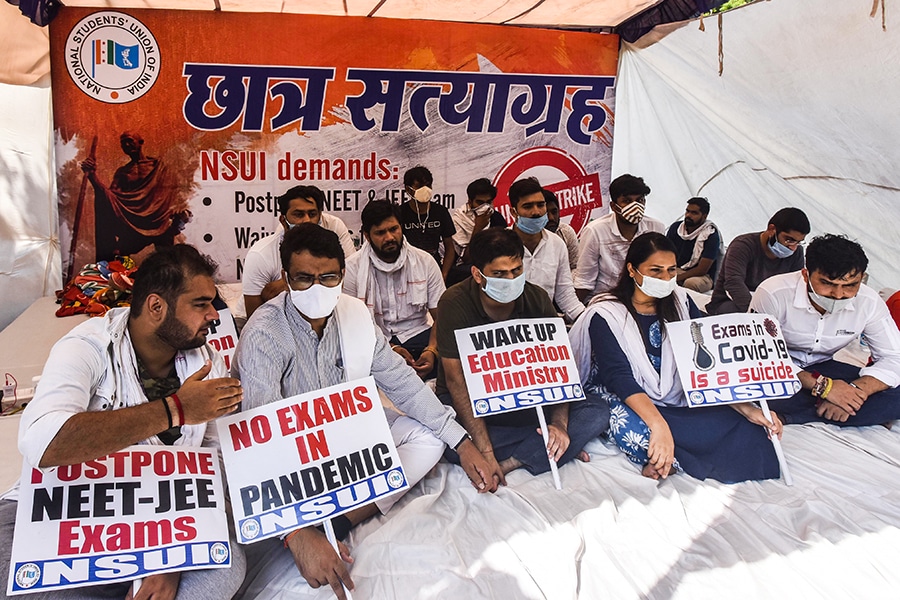
NEET, JEE 2020 row: Is it time to consider remote testing?
The student community is divided on whether the medical and engineering exams should continue during the pandemic; experts say it may be time to consider innovative alternatives to the mass test
 National Students Union of India (NSUI) activists sit on a hunger strike (Chhatra Satyagraha) against non waving of a semester's fees, declaration of conduction of JEE Mains and NEET amid the coronavius pandemic, in front of Education Ministry, on August 27, 2020 in New Delhi, India. Image: Sonu Mehta/Hindustan Times via Getty Images
National Students Union of India (NSUI) activists sit on a hunger strike (Chhatra Satyagraha) against non waving of a semester's fees, declaration of conduction of JEE Mains and NEET amid the coronavius pandemic, in front of Education Ministry, on August 27, 2020 in New Delhi, India. Image: Sonu Mehta/Hindustan Times via Getty Images
Eighteen-year-old Hitesh Sharma from Ahmedabad, Gujarat, is an aspiring doctor, and has been studying for the National Eligibility and Entrance Test (NEET) for medical education for three years. While Sharma is prepared for the test itself, he sides with the students protesting the NEET being held during the Covid-19 pandemic.
This year, 15.97 lakh students have registered for the NEET, the undergraduate entrance exam for medical education, and 8.58 lakh candidates for the Joint Entrance Exam (JEE (Main)), its equivalent for engineering. While the JEE Main is scheduled between September 1-6, the NEET will be held on September 13.
These exams have already been postponed twice amid the novel coronavirus pandemic. JEE (Main) was originally slated from April 7-11, but postponed to July 18-23, and NEET-UG for May 3, then pushed to July 26. They were postponed again and are now scheduled in September.
Students have been demanding further delay of the exams while others suggest following the schedule. Apart from the Covid-19 menace, students from flood-hit areas like Bihar, Odisha and Assam are concerned about commuting to exam centres with limited transport options.
"My centre is far from the main city, so it is relatively safer in terms of Covid-19," he says. "Even so, I’m in favour of the protests. India’s coronavirus cases are increasing leaps and bounds each day, and on the day of the exam, 15 lakh students will be stepping out—some accompanied by their parents."

.jpg?impolicy=website&width=122&height=70)





